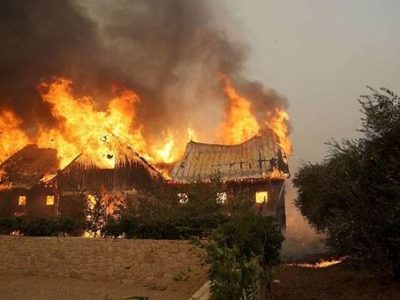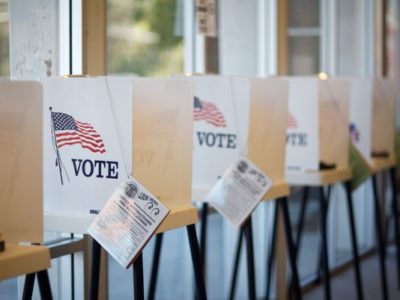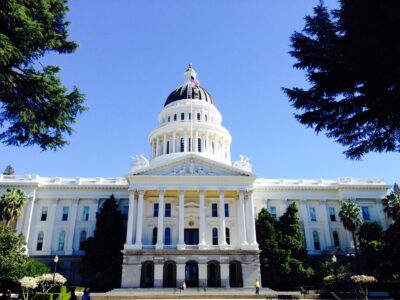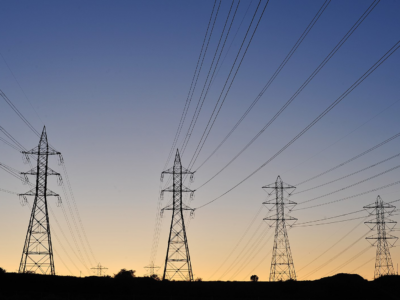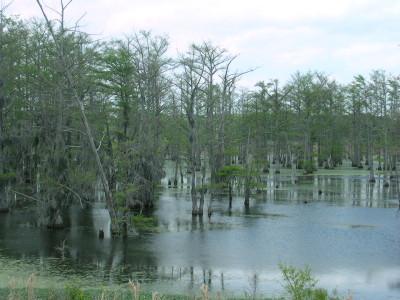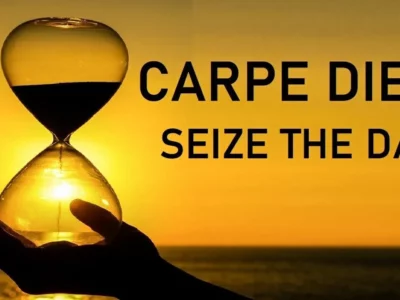Pouring Gas on a Five Alarm Fire
That’s Trump’s climate policy in a nutshell. His campaign slogan should be, "Burn, Baby, Burn."
At a dinner for oil industry CEOs last week, Trump promised to fulfill the industry's every dream in return for a billion dollars in donations. We urgently need now is more federal climate action, not less. Yet the reelection of Donald Trump would wipe out years of federal climate action. It’s important to understand fully not just the immediate effect, but the permanent impact of a second Trump term. The short term damage would be bad enough. We know that Trump...
CONTINUE READINGCan GoGreen Advance California’s Home Decarbonization Goals?
The state’s home energy financing program remains modest and needs to scale
Last week, the California Public Utilities Commission released a report evaluating the state’s GoGreen home energy financing program. Residential buildings are responsible for about 10 percent of state greenhouse gas emissions, and home decarbonization routinely ranks among the most challenging of our many emissions reduction challenges. Our buildings and electrical distribution grid are old, retrofit projects are complex and time-consuming, and few Californians h...
CONTINUE READINGMobilizing Environmental Voters
People who care about the environment may not be voters. Can that be changed?
Environmental issues such as climate change are broadly shared concerns, but for many they are low priority issues. Obviously, environmental advocates would like to raise the profile of those issues among voters. But it is also true that the environment is a priority for some people who don’t vote. Some efforts are underway to change that. I’ll describe three of them in this post, starting with the best-known group. League of Conservation Voters: Climate Vote ...
CONTINUE READINGLittle Hoover Commission Releases Flawed CEQA Report
The long-awaited report proposes sweeping exemptions and process changes—even though its own reasoning points in the opposite direction.
More than a year ago, California’s Little Hoover Commission convened the first in a series of public hearings designed to interrogate the California Environmental Quality Act (CEQA) as well as Californians’ often tense relationship with that landmark legislation. In recent years, some pro-housing advocates have pointed to CEQA as the bogeyman driving the state’s affordable housing crisis; defenders of the law say CEQA stymies relatively few developments that would ...
CONTINUE READINGCalifornia Seeks to Protect Homes from Excessive Indoor Heat
Guest contributor Cassandra Vo writes that the state should do more to protect mobile homes dwellers from heat. Work by a UCLA Law Clinic on behalf of Leadership Counsel for Justice and Accountability points the way forward on inclusive heat resiliency standards.
Guest contributor Cassandra Vo is a J.D. Candidate at UCLA Law ('25) specializing in environmental law. Hotter, deadlier, and more frequent heat waves have become one of the most surefire signs of a changing climate in our day-to-day lives. California recognized the need for action on this issue in 2022 by bringing to life AB 209, one section of which centers around creating better indoor heat safety in homes. That should include mobile home communities, which are...
CONTINUE READINGWestern States Should Opt In to Regionalized Electricity Markets
Guest contributor Kelly Cook writes that regionalization efforts present a low risk that federal control will threaten state authority.
In the West, the benefits of electricity market regionalization appear more attractive than ever. “Regionalization” refers to efforts to expand coordination between Western states to buy and sell wholesale electricity through centralized federal power markets. Increased coordination, made possible through regional transmission organizations (RTOs - independent non-profit organizations that operate the grid and oversee the operation of centralized energy markets),...
CONTINUE READINGTemporary Takings and the Adaptation Dilemma
Current law penalizes adaptation measures because of the risk of takings liability.
Is it unconstitutional for the government to build a levee that reduces the risk of urban flooding but diverts the water to nearby farmlands? The answer could be yes, unless the government pays for flood easements on the rural lands. But if the government doesn’t build the levee, it faces no liability from the urban landowners. That’s the adaptation dilemma: preparing for climate disaster is legally disfavored. The issue is created by a 2012 Supreme Court. Altho...
CONTINUE READINGJudicial Deference to Agencies: A Timeline
Decisions about judicial deference to agencies on legal issues didn’t begin or end with Chevron.
The Supreme Court is currently considering whether to overrule the Chevron doctrine. Chevron requires courts to defer to an agency’s reasonable interpretation of an ambiguous statute. We should know by the end of next month whether the current conservative super-majority on the Court will overrule Chevron. In the meantime, it’s illuminating to put the current dispute in the context of the last 80 years of judicial doctrine regarding deference to agencies on issu...
CONTINUE READINGHow the ICC is Using International Criminal Law to Prosecute Suspects of Eco Crimes
Guest contributor Aria Burdon Dasbach writes that the International Criminal Court is in the process of weighing dozens of suggestions for how to go after global environmental crimes.
There are many different ways that our global society has attempted to address environmental damage and climate change. We fund climate technology startups. We elect representatives that keep the climate in mind. We start nonprofits dedicated to reestablishing our collective sustainable relationships with earth systems. And we litigate in civil and federal courts at the national level when environmental rights have been violated. Yet the climate change clock continue...
CONTINUE READINGClimate Policy and the Audacity of Hope
The barriers are still huge — but we can also envision a path to success.
The bad news is that we’re not yet on track to avoid dangerous climate change. But there’s also good news: We've taken important steps that will ease further progress. We should resist the allure of easy optimism, given the scale of the challenges. Neither should we wallow in despair. There's a good basis for hope. To begin with, there’s been major progress in U.S. climate policy. The first half of Biden’s term saw the passage of three bills that collectivel...
CONTINUE READING



